Advanced Anorectal Disorders Treatments at VS Hospitals
Offering expert diagnosis, advanced treatment, and compassionate care for all anorectal disorders at VS Hospitals.
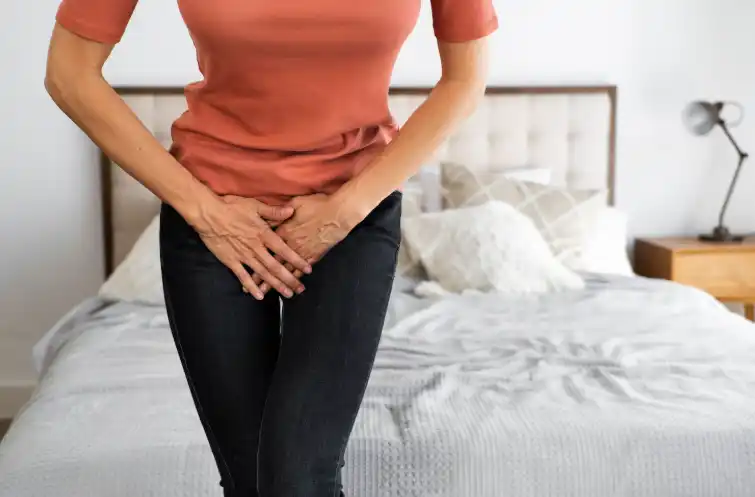
Anorectal Disorders
Anorectal disorders refer to medical conditions that affect the anus and rectum — the lower part of the digestive tract responsible for stool storage and elimination. These disorders are quite common and can range from mild conditions such as hemorrhoids to more serious issues like fissures, abscesses, fistulas, or even rectal cancers. Many people delay seeking treatment due to embarrassment or fear, but timely medical attention can prevent complications and improve quality of life.
At VS Hospitals, we provide advanced diagnosis, treatment, and surgical care for all anorectal disorders. Our multidisciplinary team of gastroenterologists, colorectal surgeons, and proctologists ensures each patient receives personalized and pain-free solutions with modern technology and compassionate care.
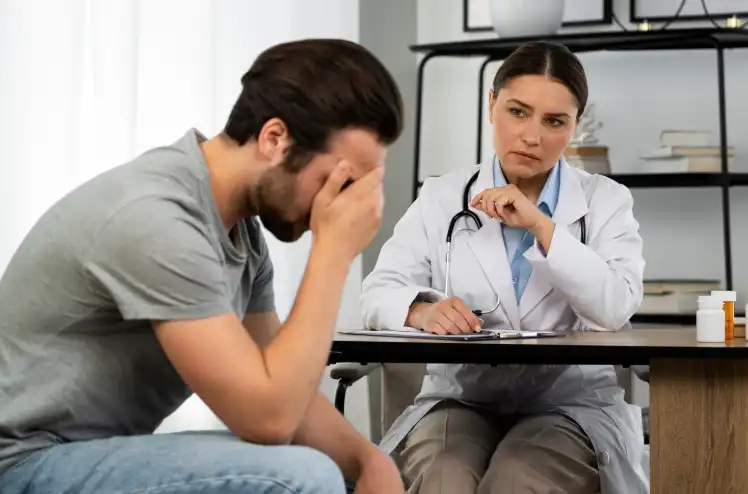
Early Detection Saves Lives
Early detection and treatment are crucial for improving the chances of survival. If you notice any concerning symptoms, consult a healthcare provider immediately.
Signs and Symptoms
Pain During Bowel Movements
Sharp or burning pain while passing stool often indicates fissures or inflammation. Persistent pain may also signal abscesses or infections.
Bleeding
Bright red blood during defecation can occur with hemorrhoids or fissures. Dark, tarry stools might indicate internal bleeding or serious rectal issues.
Itching and Irritation
Persistent itching (pruritus ani) around the anal area can result from infections, poor hygiene, or chronic conditions like eczema and hemorrhoids.
Swelling or Lumps
A palpable lump near the anus may indicate hemorrhoids, abscesses, or cysts. If the lump is painful or firm, it should be examined immediately.
Discharge or Pus
Foul-smelling discharge, mucus, or pus from the rectum could point to infections or fistulas.
Constipation or Difficulty Passing Stool
Chronic constipation or straining during bowel movements can lead to fissures and hemorrhoids.
Incontinence or Leakage
Uncontrolled bowel movements or leakage can be linked to weakened anal muscles or nerve damage.
Change in Bowel Habits
Persistent diarrhea or alternating constipation and diarrhea could indicate inflammatory or malignant conditions.
Blood in Urine
Hematuria - pink, red, or dark urine, the most common symptom
Frequent Urination
Feeling the need to urinate frequently, even when bladder is not full
Painful Urination
Experiencing pain or burning sensation while urinating
Back or Pelvic Pain
Pain that occurs as the cancer grows and spreads
Unexplained Weight Loss
Significant weight loss not related to diet or exercise
Fatigue
Feeling unusually tired or weak without a clear cause
If these symptoms persist, it’s essential to seek medical evaluation at VS Hospitals to rule out serious underlying disorders.
Meet Our Expert Anorectal Disorders Specialists
Risk Factors
Smoking
Smoking is one of the leading causes of bladder cancer. Chemicals in tobacco smoke can damage the lining of the bladder, increasing the risk.

Gender
Men are at a higher risk of developing bladder cancer than women.

Chronic Bladder Infections or Inflammation
Conditions such as bladder infections and long-term bladder inflammation can increase the risk.

Exposure to Chemicals
Prolonged exposure to certain chemicals, especially those used in the dye industry, rubber production, and chemical manufacturing, increases the risk.

Chronic Constipation or Straining
Repeated straining during bowel movements puts pressure on rectal veins and tissues, leading to hemorrhoids and fissures.

Low-Fiber Diet
Diets lacking fiber result in hard stools, causing constipation and straining, which can damage the anorectal lining.

Sedentary Lifestyle
Lack of physical activity slows digestion and increases pressure on the pelvic region, worsening conditions like hemorrhoids.

Obesity
Excess body weight exerts pressure on pelvic veins and can lead to varicose veins in the rectal area.
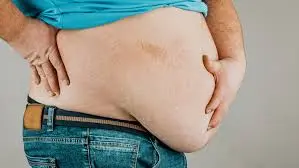
Pregnancy and Childbirth
Hormonal changes and increased pressure during pregnancy can cause or worsen hemorrhoids and fissures.

Aging
Muscle tone in the rectum and anus weakens with age, increasing susceptibility to disorders like prolapse or incontinence.

Chronic Diarrhea
Frequent loose stools can irritate the anal lining, leading to inflammation or fissures.
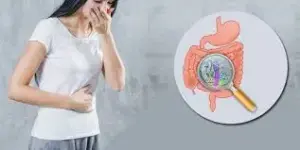
Genetic Predisposition
Some individuals may be more prone to anorectal conditions due to inherited vein or connective tissue weaknesses.
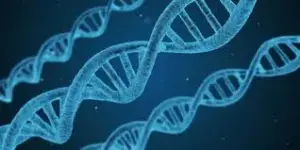
Poor Hygiene or Infections
Lack of cleanliness or bacterial infections can cause abscesses, itching, or fistula formation.
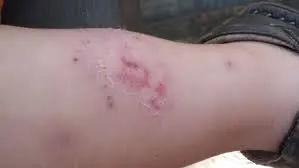
Previous Surgery or Injury
Surgery in the pelvic or anal area can weaken tissues and lead to complications such as strictures or incontinence.
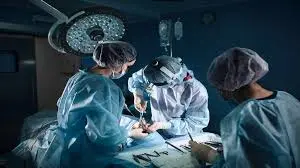
Anorectal Disorders
Diet and Nutrition
Prevention
Diagnosis
Key Services
Key Facilities
Nutrition plays a central role in both the prevention and management of anorectal disorders. The dietitians and gastro specialists at VS Hospitals emphasize lifestyle and food choices that support smooth bowel movements and tissue healing.
- High-Fiber Foods: Incorporate vegetables, whole grains, fruits, and legumes to keep stools soft and regular.
- Adequate Hydration: Drinking 2–3 liters of water daily helps prevent constipation and reduces straining.
- Avoid Spicy and Oily Foods: These can irritate the anal lining and worsen inflammation.
- Limit Processed Foods: Low-fiber, high-fat meals delay digestion and promote constipation.
- Probiotic-Rich Diet: Yogurt, kefir, and fermented foods promote healthy gut bacteria and improve digestion.
- Reduce Caffeine and Alcohol: These dehydrate the body, leading to hard stools and irritation.
- Small, Frequent Meals: Prevents bloating and excessive pressure on the rectum.
- Supplements: In some cases, fiber supplements or stool softeners are prescribed under medical supervision.
VS Hospitals ensures that each dietary plan is customized, especially for patients recovering from anorectal surgery or chronic bowel disorders.
Preventing anorectal disorders requires a combination of dietary habits, physical activity, and hygiene practices. The specialists at VS Hospitals recommend the following preventive measures:
- Maintain Regular Bowel Habits: Avoid delaying bowel movements to prevent stool hardening.
- Include Fiber Daily: At least 25–30 grams of fiber supports easy bowel passage.
- Stay Active: Regular exercise improves digestion and blood flow in the pelvic region.
- Use Proper Toilet Posture: Squatting or using a footstool reduces strain during defecation.
- Avoid Prolonged Sitting: Take breaks every hour to relieve pressure from rectal veins.
- Practice Good Anal Hygiene: Use mild soap and water; avoid excessive wiping or perfumed tissues.
- Manage Weight: Healthy weight helps minimize pressure on the pelvic floor.
- Seek Early Medical Attention: Do not ignore rectal bleeding or pain — timely evaluation at VS Hospitals prevents complications.
With early lifestyle corrections and regular check-ups, most anorectal conditions can be avoided or managed without surgery.
Accurate diagnosis of anorectal disorders is essential for effective treatment. At VS Hospitals, advanced diagnostic tools and expert clinical evaluation ensure precise identification of underlying issues. The diagnostic process may include:
- Detailed Medical History and Physical Examination
The doctor reviews symptoms, dietary habits, and medical history, followed by a physical exam of the anal area.
- Digital Rectal Examination (DRE)
The physician gently inserts a gloved, lubricated finger into the rectum to detect lumps, fissures, or tenderness.
- Proctoscopy and Anoscopy
These minimally invasive procedures involve using a small, illuminated scope to inspect the rectal canal and anal region.
- Sigmoidoscopy
This procedure allows visualization of the rectum and lower colon to identify conditions like polyps, inflammation, or cancer.
- Colonoscopy
Recommended when more extensive evaluation is needed to check for colon-related causes of bleeding or pain.
- Ultrasound or MRI
Imaging helps detect abscesses, fistulas, or deep tissue infections that are not visible externally.
- Stool Tests
Used to detect infections, parasites, or hidden blood (occult bleeding) in the stool.
- Manometry and Electromyography
These tests evaluate muscle tone and nerve function in patients with incontinence or prolapse.
Timely diagnosis at VS Hospitals enables early treatment and reduces the risk of complications.
The Anorectal Care Unit at VS Hospitals offers comprehensive diagnostic and treatment services for a wide range of anorectal conditions. Our specialists combine medical, surgical, and lifestyle-based approaches for long-lasting relief.
Medical Management
- Non-surgical treatments for early-stage hemorrhoids, fissures, and infections.
- Use of anti-inflammatory medications, stool softeners, and topical ointments.
- Dietary counseling to increase fiber and fluid intake for healthy bowel movements.
Laser Treatment for Piles and Fissures
- VS Hospitals offers painless laser surgery, a minimally invasive and highly effective method for treating hemorrhoids, fissures, and fistulas.
- Benefits include minimal bleeding, faster recovery, and no hospital stay.
Cryotherapy and Infrared Coagulation
- Used for small hemorrhoids or vascular malformations.
- Involves freezing or coagulating blood vessels to shrink hemorrhoids painlessly.
Fistula and Abscess Management
- Advanced imaging helps locate the fistula tract accurately before surgery.
- Modern techniques such as VAAFT (Video-Assisted Anal Fistula Treatment) are used for minimal recurrence.
Surgical Interventions
- Hemorrhoidectomy: Removal of large or prolapsed hemorrhoids.
- Fissurectomy: Surgical correction of chronic anal fissures.
- Fistulotomy: Opening and draining fistula tracts for permanent relief.
- Laparoscopic Rectal Prolapse Surgery: Minimally invasive correction of rectal prolapse.
Biofeedback Therapy
- Helps patients with incontinence or pelvic floor dysfunction regain control through targeted exercises and training.
Pain and Infection Control
- Comprehensive pain management programs, antibiotics, and wound care for post-surgical recovery.
Patient Education and Lifestyle Counseling
- Guidance on diet, hydration, toilet habits, and physical activity to prevent recurrence.
- Counseling for patients dealing with chronic constipation or post-surgical anxiety.
VS Hospitals is equipped with cutting-edge facilities to provide world-class treatment for anorectal disorders:
- Specialized Anorectal Unit: Dedicated facilities for diagnosing and managing anorectal conditions, with separate male and female consultation rooms ensuring comfort and privacy.
- Advanced Diagnostic Technology: Equipped with digital proctoscopes, colonoscopes, and high-definition imaging systems for accurate diagnosis.
- Laser and Laparoscopic Surgery Suites: Minimally invasive surgical units designed for painless, scar-free procedures with faster recovery times.
- 24/7 Emergency Care: Round-the-clock availability for patients with severe pain, abscesses, or bleeding.
- Post-Surgical Recovery Rooms: Comfortable and hygienic private rooms for short-term recovery and monitoring after procedures.
- Comprehensive Pain Management Department: Dedicated team to provide effective pain control during and after treatment.
- Diet and Lifestyle Counseling Center: Personalized nutrition plans and lifestyle modification programs designed by expert dietitians to support digestive health.
- Experienced Multidisciplinary Team: A team of gastroenterologists, colorectal surgeons, anesthetists, and physiotherapists work collaboratively to provide holistic care.
- Patient Education and Awareness Programs: Regular workshops and awareness sessions on preventing anorectal disorders through healthy lifestyle choices.
Top Medical Facilities at Our Multispeciality Hospital – Here’s What Makes Us Different!
Ready to Begin Your Anorectal Disorders Journey?
Learn More About Anorectal Disorders
Frequently Asked Questions
VS Hospitals specializes in treating hemorrhoids, anal fissures, fistulas, abscesses, rectal prolapse, and anorectal cancers. With advanced laser and minimally invasive treatments, patients can expect quick recovery and minimal discomfort.
Yes. Laser treatments offered at VS Hospitals are safe, painless, and highly effective. They involve minimal bleeding, no stitches, and faster healing, making them the preferred choice for hemorrhoids and fissures.
You should consult a doctor if you experience persistent pain, bleeding, discharge, itching, or swelling near the anus. Early diagnosis and treatment at VS Hospitals can prevent complications and ensure faster recovery.
